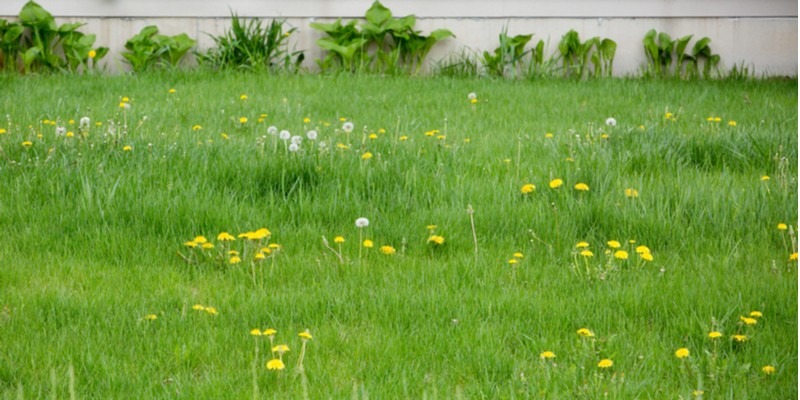
Businesses and individuals are invited to take part in the No Mow May campaign to promote greater biodiversity.
It’s a national campaign promoted by Plantlife to let lawns across the country to grow their grass throughout May to maximise food sources for insects. Not mowing the lawn allows wildflowers and other plants to grow which insects love.
Insects are suffering a huge decline for a variety of reasons including loss of habitat . It is thought that the abundance of insects may have fallen by 50% or more since 1970. Insects are an important part of the food chain, and are the main food source for many animals and birds including protected species like hedgehogs and bats, birds, slow worms, frogs, toads and fish. We rely on insects to pollinate most of our food crops and fruit trees – 75% of our food depends on insect pollination. To better understand the impact of insect decline, take a read of Avon Wildlife Trust report.
Nature loss is a global issue with economic consequences. Biodiversity loss and ecosystem collapse is one of the top five risks in the World Economic Forum’s 2020 Global Risks Report and later this year China will host COP15, the biggest biodiversity summit in a decade where countries are expected to reach an agreement over targets to protect the natural world, including proposals to conserve 30% of the world’s oceans and land by 2030, introduce controls on invasive species and reduce plastics pollution.
Locally, our local authorities and cities are now considering nature decline with Bristol setting a One City Ecological Emergency Strategy. This calls for at least 30% of land in Bristol to be managed for the benefit of wildlife; pesticide use to be reduced by at least 50%; 100% of Bristol waterways have excellent water quality which supports health wildlife; and people and businesses reduce pollution.
Businesses can also take steps to protect and enhance the biodiversity on our doorstep. This May we can do this by changing our moving routines to allow plants to flower. Leaving your lawn uncut will give our insect populations a great deal of food and shelter early in the year, which helps them to thrive. An uncut lawn can create enough nectar for ten times more bees and pollinators than a cut lawn. This can support around 400 bees a day, with some “super lawns” supporting up to 4000 bees.
Businesses can speak to their maintenance contractors or gardener and individuals can chose to leave the mower in the shed. If you are unable to commit to the whole lawn, why not leave a patch of grass to grow, and if you do not have a lawn, could you put out planters or pots with lavender or other pollinator friendly plants?
Sam Shinner, Estate Manager at Leigh Court, Business West says: “Last year we worked with our landscaping contractor to create a wildflower meadow by leaving a part of our lawns “un-mowed”. We have increased the areas left “un-mowed” this year, and through the spring and summer it is full of life and makes a beautiful feature in the grounds. It also serves as an important habitat for insects, and a food source for the bees from our beehives. Being surrounded by nature is a real asset for our business and is enjoyed by our staff, tenants and visitors and to Leigh Court”.
Lucy Rees, South Gloucestershire Council says: “South Gloucestershire Council has declared both a Climate and an Ecological Emergency. We are pleased to be taking part No Mow May as this is something that we can do as a council, as well as our staff and partners to enhance biodiversity in our region. We will be only cutting our key routes and the commitments we have with parishes. We have identified some non-essential areas where we won’t be cutting anything where we don’t need to on our council land for the whole of May.”
Claire Ralph, Project Manager, Business West says: “As an avid gardener, I understand the valuable work pollinators do for my allotment. It is so good to see so many businesses in Portishead and beyond getting ready for No Mow May, there are many ways a business can reduce its environmental impact and support nature, this is just one way”.
Do consider taking part and encourage your staff to get on board too. Plantlife have lots of resources to help and do share your progress on social media using #NoMowMay.
Last year, Business West declared a Climate Crisis and acknowledged biodiversity loss and set out how it would take action to reduce emissions and embrace nature based solutions as a business, with its members and with regional partners. We will share our own progress, signpost to support and share best practice through the Trading to Net Zero hub.
- Log in to post comments
